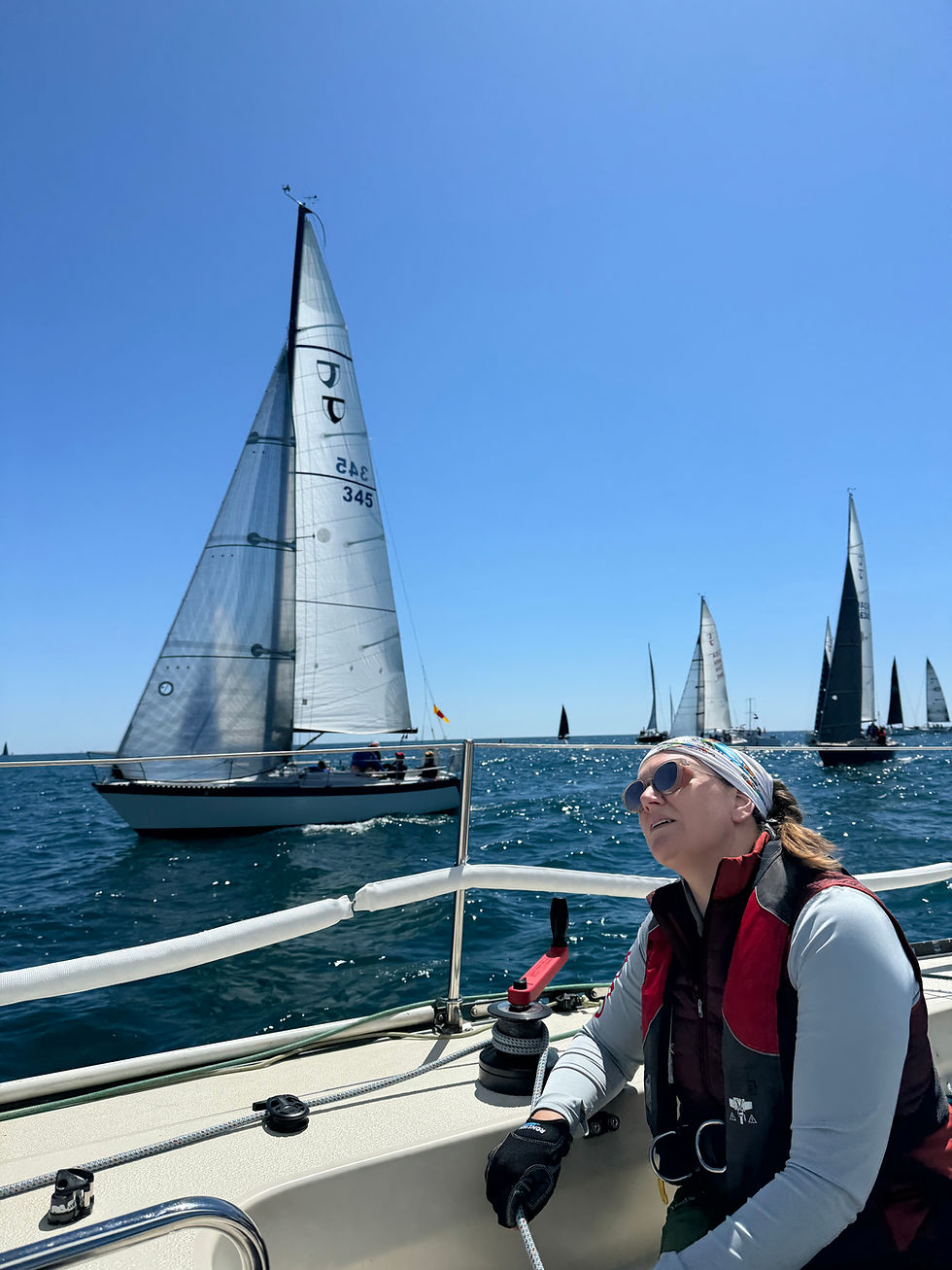What Sailing Taught Me About Teams, Trust, and Enjoying the Work
- Katie Kolon
- Jul 15, 2025
- 3 min read

Over the past five years, I've gotten into competitive sailing, and it's taught me a lot about the importance of relationships. I've spent a lot of time learning how to read the wind, trim sails, and react fast. But the biggest lessons haven't been tactical, they've been about trust, communication, and what it takes to function as a team.
When you’re racing on a sailboat, everyone has a specific job, whether it's helming, "railmeat", trimming, tactics, pit, or foredeck. No one can do it all. You have to rely on each person to bring their full attention and skillset. It’s a clear, high-stakes example of interdependence. If one person is off, the whole boat suffers.
(And yes, there are solo boats and cruising boats and casual race nights. But for now, let's go with the team racing metaphor.)
We spend a lot of time together out on the water, and much of it is fun, but sailing is a risky and dangerous sport. Having a group you genuinely trust and enjoy being around is essential. You need to trust that your team has your back, can communicate effectively under pressure, and has the training to keep each other safe. But you also need a team that makes you want to show up, give your best, and keep learning together. Honestly? Anything you dedicate that much time to should be fun, if it can be.

The same applies in the workplace. The highest-performing teams value diversity across skillsets, identities, lived experience, and work styles. I wouldn't want a team where every person needs to be good at everything. We're not operating a one-person ship! People do best when they can lean into what they’re good at and what they love. Supporting diversity means recognizing people’s unique strengths and letting them add value in their own way. That diversity expands what the team is capable of, but only if the environment supports it.
What makes it work isn’t just talent. It’s trust. It’s communication. It’s the ability to listen and adjust in real time, without taking feedback personally. The best teams I’ve sailed with had each other’s backs, knew when to step up and when to get out of the way, and knew how to reset quickly after a mistake.
If people don’t feel safe speaking up, or if only certain perspectives are consistently heard, the success of your team will be limited. Learning stalls. Communication breaks down. You won't hear about those innovative ideas. You won't see peer-to-peer collaboration. And even high performers start working in silos, just trying to keep their heads down and avoid rocking the boat (pun intended).
If you want to build a team that grows stronger over time, where people thrive and bring their best, treat it like a finely tuned crew:
Let people excel in their roles
Create space for honest communication
Build trust through shared experience, not just shared goals
Whenever you can, make it enjoyable. It should be genuine and deserved camaraderie, not something imposed.
Sailing showed me that having the best players won't lead to success if they can't communicate and work well together. A winning environment is built on respect, cohesion, awareness, and momentum. This principle applies to leadership as well.
Are you part of a team like that? How do you build trust where you work?



Comments